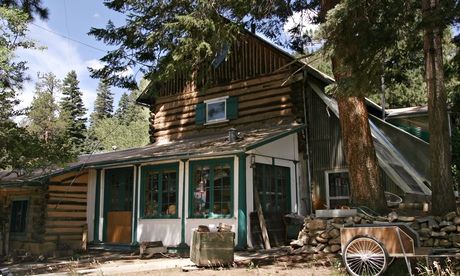
I quite like the idea of beaches. The idea. In the abstract, that sun and sea and rest all seem rather appealing. As I type this article, with the rain beating down outside and deadlines clamouring all around me, a seaside holiday seems like a fine plan. But I know that when I get there, I'll ruin it.
At first it will be great. I'll swim. I'll eat sandwiches. I'll swim again. I'll apply more suntan cream. And then? Ten minutes will have passed and there will be an entire day – an entire week – of enforced idleness before me. I will start worrying. I'll start to see time slipping away like sand through a glass. No, worse, like the sand that lies all around me. All of it wasted. Not even moving. Not even making as much of an impression on the world as its fellow sand that measures out the hours in egg timers and is at least useful as a metaphor for lost opportunity.
And that's only the start. Soon will come the thoughts about all the more constructive things I could be doing instead of lolling about like so much dead meat on that sandy waste. Still more painful will be the thoughts of the more constructive things other people are doing. I'll start to consider achievement. I'll recall the fact that Kurt Cobain was 10 years younger than me when he died. I'll remember Rimbaud had given up poetry by the time he turned 21. I'll be keenly aware that all I'm doing to counter the balance is lying around doing nothing. I'll know that Vanilla Ice had his entire career in the time I've spent frying up beside the sea. So I'll know that Vanilla Ice is better than me.
Such thoughts are not entirely healthy, I know. The answer, of course, is to immerse myself in a good book: something distracting and improving all rolled into one. Better still, a book by an author who feels that he is doing as little as I am and is just as worried about it. Better still, a book by someone who can make me laugh about such agitations, and by a strange alchemy make them seem constructive and useful. Best of all, I'll re-read Out Of Sheer Rage by Geoff Dyer.
You don't need to look any further than the opening to see why this book is such a good fit with my coastal angst:
"Looking back it seems, on the one hand, hard to believe that I could have wasted so much time, could have exhausted myself so utterly, wondering when I was going to begin my study of DH Lawrence; on the other, it seems equally hard to believe that I ever started it, for the prospect of embarking on this study of Lawrence accelerated and intensified the psychological disarray it was meant to delay and alleviate."
But of course, having read that effortlessly elongated first sentence, you'll want to read on. Actually, now I've written that, I realise that you probably don't even have to read the first sentence. The title itself was enough for me. Has a book ever had a better name than Out Of Sheer Rage?
The line comes from DH Lawrence. On 5 September 1914 he wrote: "Out of sheer rage I've begun my book on Thomas Hardy. It will be about anything but Thomas Hardy I am afraid – queer stuff – but not bad."
Dyer's book is similarly queer, and similarly avoids the topic of Lawrence. Except, somehow, he also manages to make a gorgeously eloquent defence of the author's genius. Mercifully, he avoids the overstuffed sofa novels like Sons And Lovers, preferring to focus on letters like the one that provides the quote about rage. There's a tremendous sense of discovery as Dyer uses these to reveal a Lawrence of passion, compassion and – this may surprise those who dislike the novels – self-deprecating wit. A man who could laugh at the "dark and sinister effect" of the newspaper photographs of his bearded older self; describe his younger self as "a bright young prig in a high collar like a curate".
Dyer himself is also very funny. I roared with laughter, for instance, the first time I read his account of watching a documentary meant to boost the tourist credentials of Lawrence's birthplace Eastwood, but which really only emphasises how much the bearded author "hated" it and everything in it. And how about the cruel perfection of this description of literary academics: "A group of wankers huddled in a circle, backs turned to the world so that no one could see them pulling each other off."
And if that doesn't exactly fit the holiday mood, the book is full of sunny descriptions of Paris, Rome, Mexico, New Mexico and, yes, beaches. It's true that Dyer is generally on the move rather than lying on the sand. He is frequently engaged in literary pilgrimage. But don't worry. He also expertly demonstrates the folly of such excursions. Here he is on the moment of arrival at one of Lawrence's houses: "you look and try to summon up feelings which don't exist. You try saying to yourself, 'DH Lawrence lived here'. You say, 'I am standing in the place he stood, seeing the things he saw … ' but nothing changes, everything remains exactly the same: a road, a house with sky above it and the sea glinting in the distance."
Ideal! That's bound to make me feel better about doing nothing and going nowhere. Especially since reading this book is the very opposite of a waste of time. It is an education and a delight.

